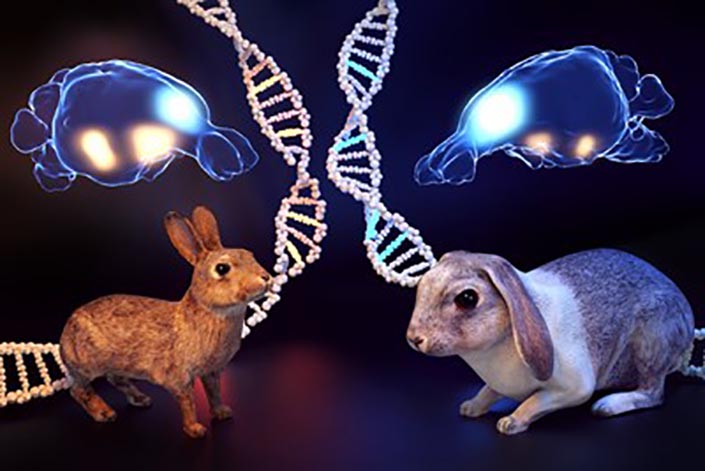New study: Why are wild rabbits more fearful than domestic rabbits?

Image: College of Veterinary Medicine & Biomedical Sciences
The most characteristic feature of domestic animals is their tame behavior.
After examining brain scans of domesticated rabbits, an international team of scientists has determined that domestication has had a profound effect on the morphology in particular regions of the brain.
Using high-resolution magnetic resonance imaging (MRI), the team—led by Texas A&M College of Veterinary Medicine & Biomedical Sciences (CVM) professor Leif Andersson—has found that domesticated rabbits’ amygdala and medial prefrontal cortex, those regions of the brain involved in fear processing, have been particularly affected. The study has been published in the Proceedings of the National Academy of Sciences of the United States of America (PNAS).
In contrast to domestic rabbits, wild rabbits have a very strong flight response because they are hunted by eagles, hawks, foxes and humans and, therefore, must be very alert and reactive to survive in the wild.
“In fact, Charles Darwin wrote in ‘On the Origin of Species’ that ‘no animal is more difficult to tame than the young of the wild rabbit; scarcely any animal is tamer than the young of the tame rabbit,’” Andersson said. “There is no doubt that this type of differences in behavior between wild and domestic animals to a large extent are genetically determined.”
In the study, scientists raised eight domesticated and eight wild rabbits under very similar conditions to minimize changes due to environmental effects. The brain MRI data were interpreted with sophisticated image analysis in which the scientist carrying out the analysis was unaware of the status animals—that is, wild or domestic.
The results show that an area involved in sensing fear, the amygdala, is smaller in size, while an area controlling the response to fear, the medial prefrontal cortex, is larger in domestic rabbits.

